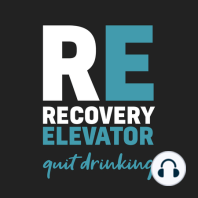44 min listen
RE 164: Do the Medications Work?
ratings:
Length:
45 minutes
Released:
Apr 9, 2018
Format:
Podcast episode
Description
Do the medications work? Paul reads messages he received from different podcast listeners about their experiences with some of the various medications often prescribed as quit aids for quitting drinking. Though they are not known to be an effective all-in-one cure for alcoholism, they appear to be a positive piece to the recovery portfolio for some. Ed, with 11 days since his last drink, shares his story: SHOW NOTES [6:20] Paul Introduces Ed. Sober for 11 days. Has been on Naltrexone for 6 years. 40 years old. Research scientist, molecular biologist. Has two young children. Really enjoying his work. Started to drink more seriously during mid 20's. [10:13] At what point did Naltrexone enter the picture? During his mid 30's. He was falling down stairs and wetting his bed on the weekends, yet he was still in denial. He sought out a medicine to help with his hangover symptoms, found the Sinclair method on the internet. [13:05] Did you go straight to Naltrexone or did you try other methods first? He went to his doctor and asked him about Naltrexone. He had tried AA but didn't like it. The doctor was cautious, but gave him the green light. [15:10] Having used Naltrexone, what is your take on alcoholism being defined as a disease? Alcoholism is definitely a disease. It runs in families, etc. People who don't have the disease don't understand what it's like. People drink for different reasons, but once addicted people are equal. [17:16] Where is the disconnect between the recovery and medical communities? Not enough research in general, and in recovery methods. The numbers we are working with today probably aren't the whole picture. Not tied into addiction in general. One thing he wants to emphasize is that Naltrexone should not be used by an alcoholic to try and drink like a normal person. It can help someone quit but should only be used for that. If you are already quit, stay quit. [21:22] If it feels more or less under control at this point, why aim for total abstinence? He isn't getting anything out of it at all anymore. He feels the overall force of alcohol in our lives is destructive. He feels great. [24:44] Where are you at with cravings? Cravings are decreased with Naltrexone. He likes not closing the door completely because he feels like he can fit in. It's easier to just have a little bit. [26:08] What about your friends who had a negative experience with Naltrexone? One friend ended up going on Naltrexone. He used it moderately and it had negative effects. Moderate reward can be more addicting than regular reward. [29:00] Are you tempted to not use the pill? He's tempted but has never broken the rule, which is why he feels he's been successful so far. [30:09] How does your routine work with the pill? He just takes it every day. [31:15] Do you agree that Naltrexone only cures the physical part of alcohol addiction? Yes. It's why it may not work for everyone. It only address the physical part, but doesn't address the mental and spiritual parts of alcohol addiction. [35:20] Do you think it is fear that is keeping you from aiming for complete abstinence? It plays a part. It's difficult to leave behind. He recognizes the fear but knows that he's strong enough to overcome it and move forward with his life in a healthy and positive way. [36:07] Rapid Fire Round What was your worst memory from drinking? On a ski trip, he drank much more than everyone else. He wet the bed in front of all of his friends. Did you ever have an “oh-shit” moment? Out with friends, he realized he was the drunk that everyone used to compare themselves to. What’s your plan moving forward? Keep working on the mental and spiritual aspects of this. Aiming for abstinence. What’s your favorite resource in recovery? Online forum: Sinclair method. What’s the best advice you’ve ever received (on sobriety)? Can't do it alone. Hear the stories. Reach out. What parting pie
Released:
Apr 9, 2018
Format:
Podcast episode
Titles in the series (100)
018: Tim from Sobernation.com shares his story and how in recovery he has created online community of over 200k people in recovery: Also in the episode, Paul discusses the must see The Anonymous People, which is a documentary about recovery. by Recovery Elevator ?
